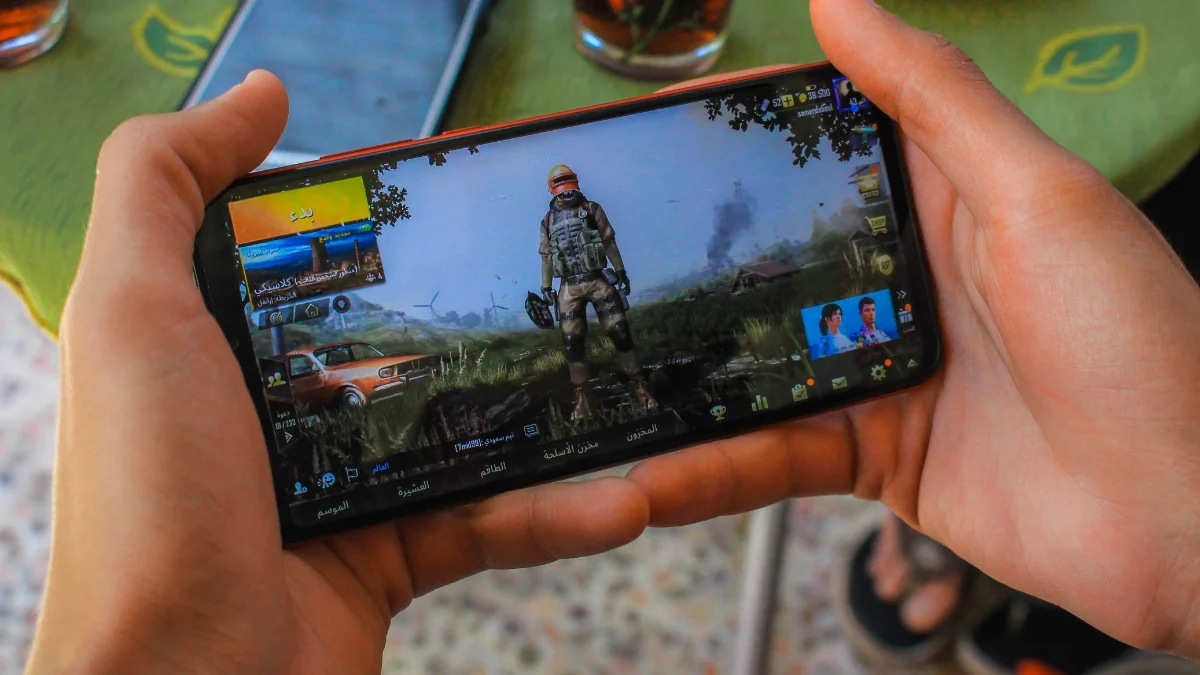
It’s no longer just professional gamers who can earn money playing video games. Thanks to new platforms, anyone dedicated, organized, and eager to learn can potentially make income from gaming – whether as a small side job or a more significant source of revenue. The trick is to find an approach that suits your skills and then commit to it like any other job, with clear goals and results.
Here are ten ways to earn money-like livestreaming, competing in tournaments, or offering coaching-with clear instructions, helpful tools, and advice on how to get started. You can choose just one, or combine several for a more reliable income.
Livestreaming on Twitch or YouTube

If you want to make money livestreaming, start by ensuring you have a solid setup. This means using reliable broadcasting software like OBS, a fast and stable internet connection (at least 6-8 Mbps for high-definition video), and a regular streaming schedule. On platforms like Twitch, you can earn money through subscriptions, donations (called Bits), advertising, and sponsorships. YouTube offers similar options with memberships, Super Chat, ads, and sponsorships. To maintain good video quality and stay within platform guidelines, aim for a video bitrate of around 6000 kbps, a keyframe interval of 2 seconds, and 48 kHz audio. Finally, use consistent visual elements like logos, alerts, and overlays to help viewers easily recognize your stream.
To grow your audience, focus on being easily found and keeping viewers engaged. Choose games or content areas where you can be unique, and use clear titles and tags so people can find you. Turn great moments from your streams into short videos for platforms like YouTube Shorts, TikTok, and Instagram Reels. Make sure to follow each platform’s rules about music to avoid copyright problems, establish clear guidelines for your chat, and save your streams so new viewers can watch them even when you’re not live.
Create Gaming Videos on YouTube

Okay, so I’ve learned that if I want to really level up my videos, consistency is key. I’m starting to plan everything out first – writing down the main points I want to hit. Then, I’m shooting in the highest quality possible, making sure my audio is crystal clear, and adding lots of visual interest with B-roll and on-screen graphics to keep things moving. But it doesn’t stop there! I’m religiously checking YouTube Analytics – things like click-through rate, how long people actually *watch*, and those audience retention graphs – to see what’s working and what’s not. It’s all about figuring out what keeps people engaged and then making more of *that* content, plus tweaking my thumbnails to grab attention.
Enter esports and online tournaments

Competitive gamers can make money by winning tournaments, receiving salaries from teams, and earning performance-based bonuses. They can compete on platforms like ESL, FACEIT, Battlefy, and Start.gg. It’s best to start with local or school-level competitions to gain experience and build a record. When reaching out to teams or managers, share videos of your best plays and performance statistics. To track your progress, save recordings of your matches, practice sessions, and notes on your own performance.
Being well-prepared is just as important as being naturally talented. That means reviewing your gameplay, using aim trainers or practice tools, and creating focused training sessions with warm-ups, practice matches, and analysis. Before competing, double-check the event rules regarding maps, formats, and anti-cheat measures, and make sure your settings are legal. Also, confirm you’re eligible to participate. If it’s an in-person event, book travel arrangements early and let your fans know your schedule so they can watch you play.
Do Paid Playtests and User Research

Game developers and research companies will pay you to give feedback on their games, both those still in development and released titles. You can sign up with websites that connect gamers with these opportunities. These usually involve playing the game for a specific time while voicing your thoughts, completing questionnaires, and sometimes participating in video interviews. They often look for players with certain gaming setups, locations, skill levels, or preferences, so it’s important to create a detailed profile to increase your chances of being selected for studies.
To increase your chances of being selected for studies, make sure you have a quiet space, a working webcam and microphone, and the ability to record your screen if asked. Always read and understand any Non-Disclosure Agreements, be on time for sessions, and give detailed, helpful feedback – for example, explain exactly how to reproduce any problems you find, including what device you’re using and when it happened. Finally, keep track of the studies you complete and how much you’ve earned so you can calculate your hourly rate and focus on the most valuable opportunities.
Work as a Game QA Tester (Contract or Freelance)

QA testers are responsible for identifying, replicating, and thoroughly documenting bugs on various platforms. This involves running established test plans, creating clear bug reports that detail the difference between expected and actual results, and providing supporting evidence like screenshots or videos. They also follow a priority system (ranging from critical issues that stop progress to minor imperfections) set by team leaders. You can find QA testing jobs through temporary agencies, testing companies, or directly with game studios. While many positions require working in the studio, remote opportunities are available, particularly for compatibility and ongoing game support testing.
Okay, so as a gamer, if I’m helping test things out, here’s what I’m learning to do. First, I need to keep track of all the different devices and software versions we’re using – basically, a master list. Then, I’m getting good at grabbing logs and system info when something goes wrong, which is like collecting evidence! I’m also learning to use tools like JIRA to report bugs and version control to keep track of changes. Being available during big testing pushes and live events is super helpful. Finally, I’m building up a collection of clear bug reports – detailing exactly how to make the problem happen, what I was doing, and what system I was on. It’s all about being organized and making it easy for the developers to fix things!
Coach Other Players

Experienced players can earn money by sharing their knowledge through individual coaching, reviewing gameplay footage, and creating training programs. Decide what you’ll focus on – like helping players reach a specific rank, mastering a hero, preparing for certain maps, or improving their mental game – and offer coaching packages that clearly show what clients will receive, such as a pre-session form, reviewed gameplay with notes, practice exercises, and a way to track their progress. Showing proof of your own skill – like rank screenshots, tournament results, or verified stats – will help you stand out from other coaches.
Make things easier for clients by using online scheduling and payment systems. Before each session, ask them to send gameplay clips. Afterwards, provide written feedback with specific drills and goals. Don’t forget to gather client success stories and track their progress! Create helpful resources like checklists and warm-up guides – you can sell these separately or offer them as extras to increase your income.
Trade In-Game Items Within Allowed Marketplaces

Some online game worlds allow players to trade virtual items for real money, often through official or approved marketplaces like those run by the game developers. Players can earn money by finding valuable items, knowing how often they appear in the game, paying attention to game updates, and selling items at competitive prices after accounting for platform fees. To figure out what’s truly profitable, it’s important to carefully track how much you buy items for, how much you sell them for, any fees charged by the platform, and your final profit margin.
Before you start trading, carefully read the rules for the game, the trading platform, and any laws in your region. Stick to approved marketplaces to keep your account safe. If possible, look at past price trends and pay attention to game updates that might change how valuable items are. Always take clear screenshots of what you’re selling, with correct descriptions. To minimize risk, trade in a variety of different items that aren’t closely related in value, so big game changes don’t affect all your inventory at once.
Use Affiliate Marketing Around Your Gameplay

As a fan, one of the coolest ways I’ve found to support the things I love is through affiliate programs. Basically, they pay you a little something when people buy stuff through your links – think gaming hardware, accessories, or even digital games themselves. I like making helpful guides, like comparing different gear, showing how to set things up, or just sharing what I personally use. When I do that, I always include the product names, specs, and, of course, the links! It’s super important to be upfront and let everyone know I’m using affiliate links – each platform has its own rules about that. And to see what’s *really* working, I add little tracking codes (UTM parameters) to my links so I can figure out which guides are sending the most sales. It’s a win-win!
Add links to your stream panels, video descriptions, pinned comments, and chat commands, and make sure to remove or update them if products become unavailable. Boost sales by including time-stamped demos, performance data, and easy-to-follow guides that help viewers find the right equipment for their budget. Each month, check your link analytics and remove any that aren’t getting clicks or earning much money, replacing them with better options.
Sell Game Guides, PDFs, and Mini-Courses

You can turn your gaming expertise into a source of income by creating helpful guides and short courses. Focus on a specific topic players are looking for – like getting started, improving your in-game economy, mastering speedruns, or climbing the ranked ladder. Break down the information into easy-to-follow steps with visuals like screenshots and checklists. Then, package it as a PDF, a template, or a video course and sell it through a platform that handles payments and delivery.
Make sure your product versions match significant updates, and clearly explain your update schedule on your website. Enhance your offering with extras like printable guides, tools to help users maximize benefits, or practice exercises. Also, include a way for users to share their suggestions for future improvements. Consider offering a simpler, more affordable version to attract more customers, and a premium version with added support like one-on-one coaching or a private question-and-answer session.
Join Skill-Based Cash Contests and Reward Apps

Many platforms now host competitions for popular mobile and casual games where players can win cash prizes. These competitions require a small entry fee and feature fair play with anti-cheat measures and clear rankings. If you’re new, start with low-stakes games to understand how scoring works, time limits, and the rules against cheating. Reviewing recordings of your games can help you improve your strategy and consistently perform better. To see if it’s worth your time, keep track of how often you win and how much each entry costs, so you can calculate your potential earnings over time.
Okay, so I’ve been checking out these reward apps and console programs, and they’re a way to earn a little extra by doing things like completing quests, keeping daily streaks going, or hitting achievements. Basically, you get gift cards or credit towards your account. To really get the most out of them, I try to knock out a bunch of tasks at once, focus on the ones that pay out the most, and set reminders so I don’t forget when new stuff becomes available each week or month. It’s super important to double-check if the app even works in my country, how I can actually cash out, and if they’re going to hit me with any fees before I spend a ton of time on it.
Tell us in the comments what strategies you’re using, or what you’re planning to try, so we can all learn from each other’s experiences.
Read More
- 2025 Crypto Wallets: Secure, Smart, and Surprisingly Simple!
- Gold Rate Forecast
- Brown Dust 2 Mirror Wars (PvP) Tier List – July 2025
- HSR 3.7 story ending explained: What happened to the Chrysos Heirs?
- 9 Video Games That Reshaped Our Moral Lens
- Gay Actors Who Are Notoriously Private About Their Lives
- ETH PREDICTION. ETH cryptocurrency
- Games That Faced Bans in Countries Over Political Themes
- The 10 Most Beautiful Women in the World for 2026, According to the Golden Ratio
- The Best Actors Who Have Played Hamlet, Ranked
2025-09-24 22:17